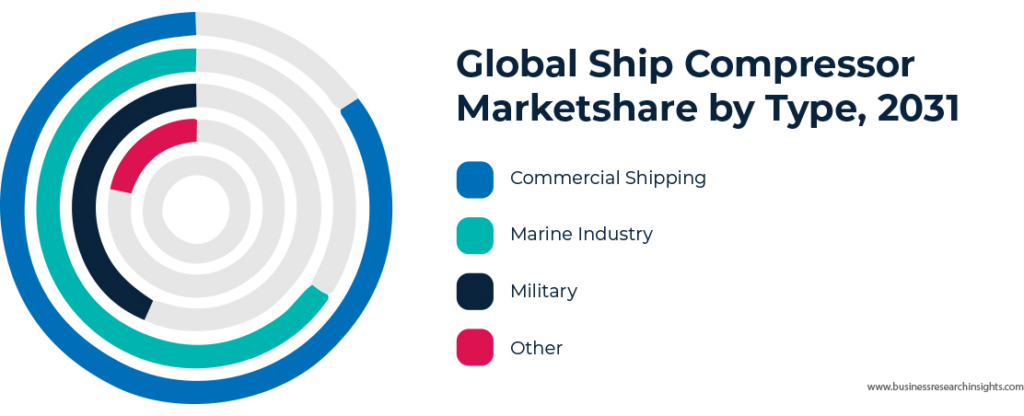
Last year, we reported on the projected growth of the ship compressor market heading into 2030 and beyond. Now we’re back with our updated analysis of the latest market trends and the factors that are driving market growth. New research indicates that the global ship compressor market will cross half a billion dollars in 2031, thanks to an accelerated Compound Annual Growth Rate (CAGR) of 5.1%.
This is leading prominent market players to join collaborative partnerships with other companies (see: Atlas Copco / MPCC article) to stay ahead of the competition, whilst most are investing in cutting edge technology that makes their compressors cleaner and more efficient than ever. This latest research identifies the top 10 manufacturers in the market to be Sauer Compressors, Kaeser, Sperre, Ingersoll Rand, Tanabe, Hatlapa (MacGregor), Atlas Copco, Kobelco, Corken, Burckhardt Compression
Download MPCC Compatibility List
Driving forces
The emphasis on better energy efficiency has been a significant driver of growth in the ship compressor market. Ship owners and operators are not only looking to reduce fuel consumption with systems such as Frese’s FUELSAVE®, but are increasingly seeking compressor systems that can reduce energy consumption, lower operating costs, and comply with ever more stringent environmental regulations, whilst also adhering with their own Environmental and Social Governance (ESG). The latest energy efficient compressors with advanced technologies, such as variable frequency drives (VFD’s) and optimised control systems, have gained huge traction within the market.
Compliance with international emission standards, such as the International Maritime Organisation’s (IMO) Tier III regulations, which aim to reduce nitrogen oxide (NOx) emissions has become essential, so compressors built and outfitted with smart systems such as selective catalytic reduction (SCR) or exhaust gas recirculation (EGR) valves as seen in cars for many years, help ship-owners meet these requirements. In addition, the increasing adoption of liquid natural gas (LNG) as a marine fuel is driving ship compressor market growth. LNG-powered ships utilise compressors for fuel gas supply and handling. As more ships transition to LNG as a cleaner alternative, the demand for market in this segment is expected to grow.

Industry applications
If we look at where demand is being generated, we can clearly see that it is not naval or passenger vessels that are the root driver, but the overall growth in the global shipping industry itself is the significant growth factor.
As international trade continues to expand, there is an increasing demand for container vessels, which in turn drives the need for ship compressors for various applications such as air conditioning, refrigeration, and pneumatic systems. This rise in shipbuilding activities worldwide, especially in emerging economies, brings about a growing need for compressors to be installed in newly built vessels.
However, it’s not just developing nations that are leading the growth – The Asia Pacific (APAC) region holds the leading position in ship compressor market share. In particular countries such as South Korea have a significant impact upon the global shipbuilding industry. Well known for their large-scale shipbuilding facilities, Korea has been a major contributor to the growth of the market.
With this in mind, the future looks bright for the Marine Compressor market – And with 150,000 parts in stock across 3 warehouses in the UK, Singapore and the UAE, MPCC is perfectly positioned to be your first port of call!
